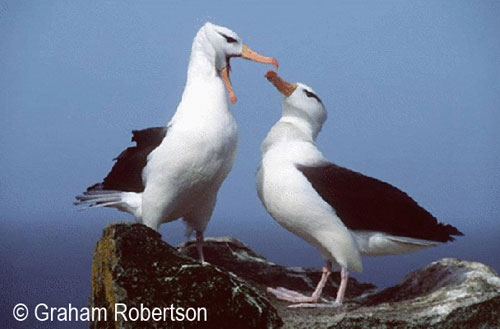Peter Ryan (FitzPatrick Institute, University of Cape Town, South Africa) and colleagues have a paper in press with Marine Pollution Bulletin that reports on plastics ingested by 868 albatrosses killed on longlines off South Africa.
The paper’s abstract follows:
“We provide data on regional differences in plastic ingestion for two Southern Ocean top predators: Arctocephalus fur seals and albatrosses (Diomedeidae). Fur seals breeding on Macquarie Island in the 1990s excreted small (mainly 2–5 mm) plastic fragments, probably derived secondarily from myctophid fish. No plastic was found in the scats of these seals breeding on three islands in the southwest Indian and central South Atlantic Oceans, despite myctophids dominating their diets at these locations. Compared to recent reports of plastic ingestion by albatrosses off the east coast of South America, we confirm that plastic is seldom found in the stomachs of Thalassarche albatrosses off South Africa, but found no Diomedea albatrosses to contain plastic, compared to 26% off South America. The reasons for such regional differences are unclear, but emphasize the importance of reporting negative as well as positive records of plastic ingestion by marine biota.”

Black-browed Albatrosses by Graham Robertson
Reference:
Ryan, P.G., de Bruyn, P.J.N. & Bester, M.N. 2016. Regional differences in plastic ingestion among Southern Ocean fur seals and albatrosses. Marine Pollution Bulletin doi:10.1016/j.marpolbul.2016.01.032.
John Cooper, ACAP Information Officer, 04 February 2016

 English
English  Français
Français  Español
Español